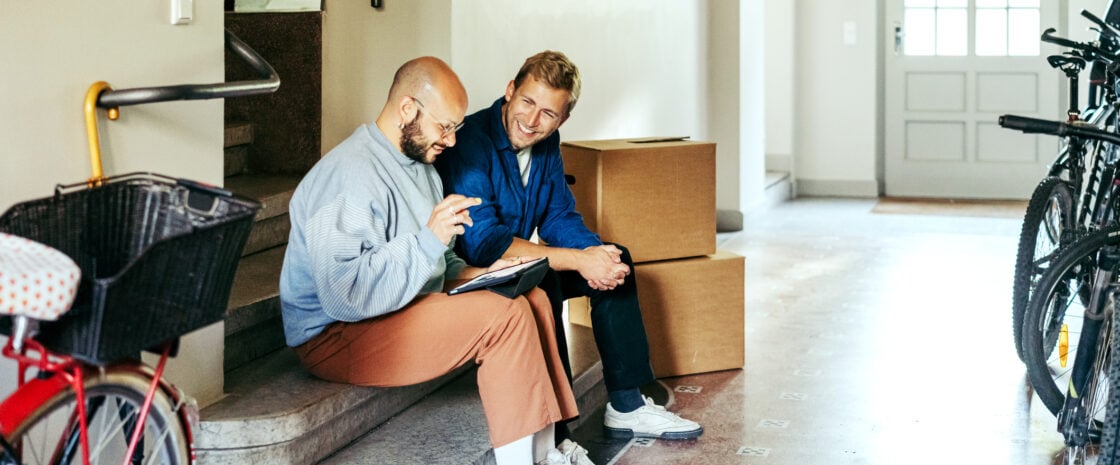Rent prices are increasing at a slower rate across Canada, and in some areas, they’re actually trending lower.
Average asking rents in Canada decreased 2.8% from a year ago to $2,119 in March, according to an April report from Rentals.ca, an apartment listing website, and Urbanation Inc., a real estate research firm. This marked the sixth consecutive month that rents decreased on an annual basis, according to the report.
A successful rental experience is about more than just making your monthly payment on time. To protect yourself and your finances, it’s important to understand your rights.
Here are some common myths about renting in Canada, and facts that debunk them.
Myth: The landlord is responsible for all maintenance.
Fact: While certain maintenance tasks are the landlord’s responsibility, some may fall to the renter. Look for these things to be outlined in your rental agreement; if they aren’t, ask about it before signing.
“There should be clarity on what you’re responsible for,” says Caron Matthew, a CPA and money coach who rented her first condo in downtown Toronto years ago. For example, if you’re renting a single-family home versus an apartment, you might be asked to mow the yard or shovel snow, she points out.
Provincial regulations typically require landlords to keep a rental unit in livable condition and comply with housing, safety and health rules. As a renter, you’re not usually on the hook for routine maintenance and repairs, but as the inhabitant, you have a role to play.
Eradicating pests, for example, might be the landlord’s responsibility, but renters are expected to keep their units clean and watch out for signs of rodents or bugs before a full-on infestation takes hold.
🤓 Nerdy Tip: Consider purchasing adequate renter’s insurance to cover the cost of replacing your personal belongings if your rental unit is damaged, vandalized or burglarized. Typically, landlords aren’t responsible for paying these costs.
Myth: Massive security deposits are normal.
Fact: Provincial rules limit how much landlords can charge for the security deposit and, in some instances, how they can use the funds.
A security deposit is payment made in advance to secure your residency, the integrity of the landlord’s property or both. Whatever the case, there are rules that must be followed.
In Ontario, for example, landlords are prevented from using a security deposit to fix damages or make repairs; it can only be used toward covering the rent payment for the final month or final week before a tenant moves out. Landlords must also pay interest on a tenant’s rent deposit each year.
Some provinces allow landlords to charge up-front damage deposits, but they typically can’t exceed the monthly rent amount (depending on your lease term).
In B.C., the maximum amount a landlord can charge for either a security or pet damage deposit is half of one month’s rent. If you’re asked to pay both deposits, the most you can be charged is one month’s rent, according to the Tenant Resource and Advisory Centre in British Columbia.
Some provinces grant tenants the right to participate in move-in and move-out inspections. Landlords must provide a copy of the report detailing a property’s condition within certain timelines. If not, the landlord may forfeit the right to keep your security deposit for any damages.
Either way, take photos when you move in and out of your rental, and make note of any damages for your own records, recommends Matthew.
Myth: Landlords can hike the rent whenever they want.
Fact: Rent control policies vary by province/territory, but landlords can’t hike your rent at their pleasure.
Landlords must follow specific notice periods and, in some areas, are capped on how much they can increase annual rents, according to the Canadian Centre for Housing Rights.
In Ontario, for instance, landlords can increase rent once every 12 months by no more than 2.5% — with 90 days’ notice in most cases. In Newfoundland and Labrador, though, there are no limits on how much rents can be increased and landlords only have to provide six months’ notice.
Myth: A landlord can enter your unit whenever they want.
Fact: Landlord entry into rental units is governed by provincial rules.
Pay close attention to your lease before signing. If it grants the landlord unlimited access to the property, it’s a red flag. Typically, landlords must provide 24 hours’ notice before entering a unit (except in emergencies and other specific situations).
The notice must offer a reasonable time for entry (usually during daylight hours) and a legitimate reason. Valid reasons might include making repairs or showing the unit to prospective tenants.
🤓 Nerdy Tip: If you have trouble with your landlord, or feel your rights are being violated, check with your provincial or territorial consumer affairs office to get information about how to properly resolve the dispute. The Canada Mortgage and Housing Corporation also offers guidance on how to navigate complaints and evictions.
Myth: You can be evicted at a moment’s notice.
Fact: Your landlord can’t kick you out on whim; they must have a reason that’s allowable by law.
Generally, failing to pay rent, damaging the rental or otherwise breaching your lease agreement gives your landlord an upper hand to evict you faster. Still, they have to give you required written notice and a valid, legal reason and you have the right to dispute a “for cause” eviction within a certain time frame.
In British Columbia, for example, a landlord must provide a 10-day eviction notice for non-payment of rent. But if a tenant violates their lease agreement or the landlord sells the property to a new owner who wants to move into the rental, landlords must give notice of 30 and 90 days, respectively.
DIVE EVEN DEEPER

Is a Rent Strike the Answer to Your Landlord Problems?
A rent strike might seem like a powerful way to solve a dispute with a landlord, but it may not be your best option.

7 Tips to Help Renters Save for Their Future Home
Skyrocketing rents are making it even harder for prospective home buyers to save. Stashing funds in the right accounts, and getting help from family or roommates, are two strategies that can give you an edge.

Rent Reporting Could Help Canadians Build Credit, but at What Cost?
While many prospective homebuyers could benefit from rent reporting, there are downsides to the optional service.

How Does a Rent-to-Own Home Work?
A rent-to-own arrangement is one in which you rent a house that you intend to buy. Each time you pay rent, a portion is applied to your eventual down payment.


